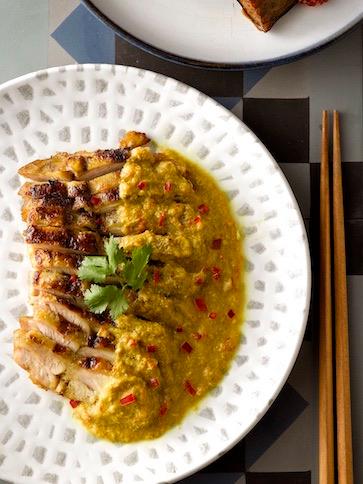Properly-prepared rempah is the backbone of cooking across the Malay archipelago and Indonesia. It’s the base of well-loved favourites from Beef Rendang to Peranakan Babi Pongteh. The literal meaning of the word is spice in Malay, but in practice a rempah refers to a paste of spices which imparts an intense flavour to a dish.
A huge diversity of ingredients may be deployed in a rempah. The most common denominators are chillies, garlic and shallots, but even the most basic of recipes will call for several more ingredients, such as turmeric (for rempah kuning, commonly paired with fish), tamarind (rempah asam pedas), and candlenuts (used in rempah titek, the typical peranakan rempah). Specific recipes may contain a complicated litany of ingredients but the aim is the same: to create the perfect harmony of flavours from ingredients that otherwise already taste bold on their own.

Traditionalists demand that whole ingredients be pounded together using a mortar and pestle. It’s backbreaking work that once served as a gauge of culinary prowess. This paste must then be fried over a gentle fire until it turns fragrant and all the oil absorbed by the rempah exudes back out from it. Not doing so will result in a dish that tastes raw and unbalanced. Once the rempah has matured in the oil, vegetables, meat or fish can be added.

Few people these days have any scruples about blitzing up a rempah in the blender, but the faster method is not more efficient. The blunt pressure of the pestle destroys the plant cell walls more thoroughly than blades, releasing more flavour compounds and forcing them to commingle. It also gives rise to a silky, unctuous texture, nothing like the pulpy product of a blender. Fibrous ingredients like the alliums, ginger-rhizomes and lemongrass stalks that are commonplace in rempahs benefit the most from the pounding process.
During the frying process these flavour compounds diffuse into the hot oil, which disperses them more thoroughly throughout the dish and over the tongue. Frying also dries up the rempah, concentrating the flavours - the apparent separation of the oil from the rempah indicates that no more water remains in the paste.
Usage “I just spent three hours pounding this rempah from scratch, it had better be worth it!”





















